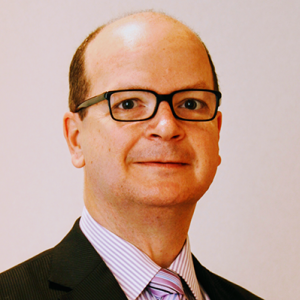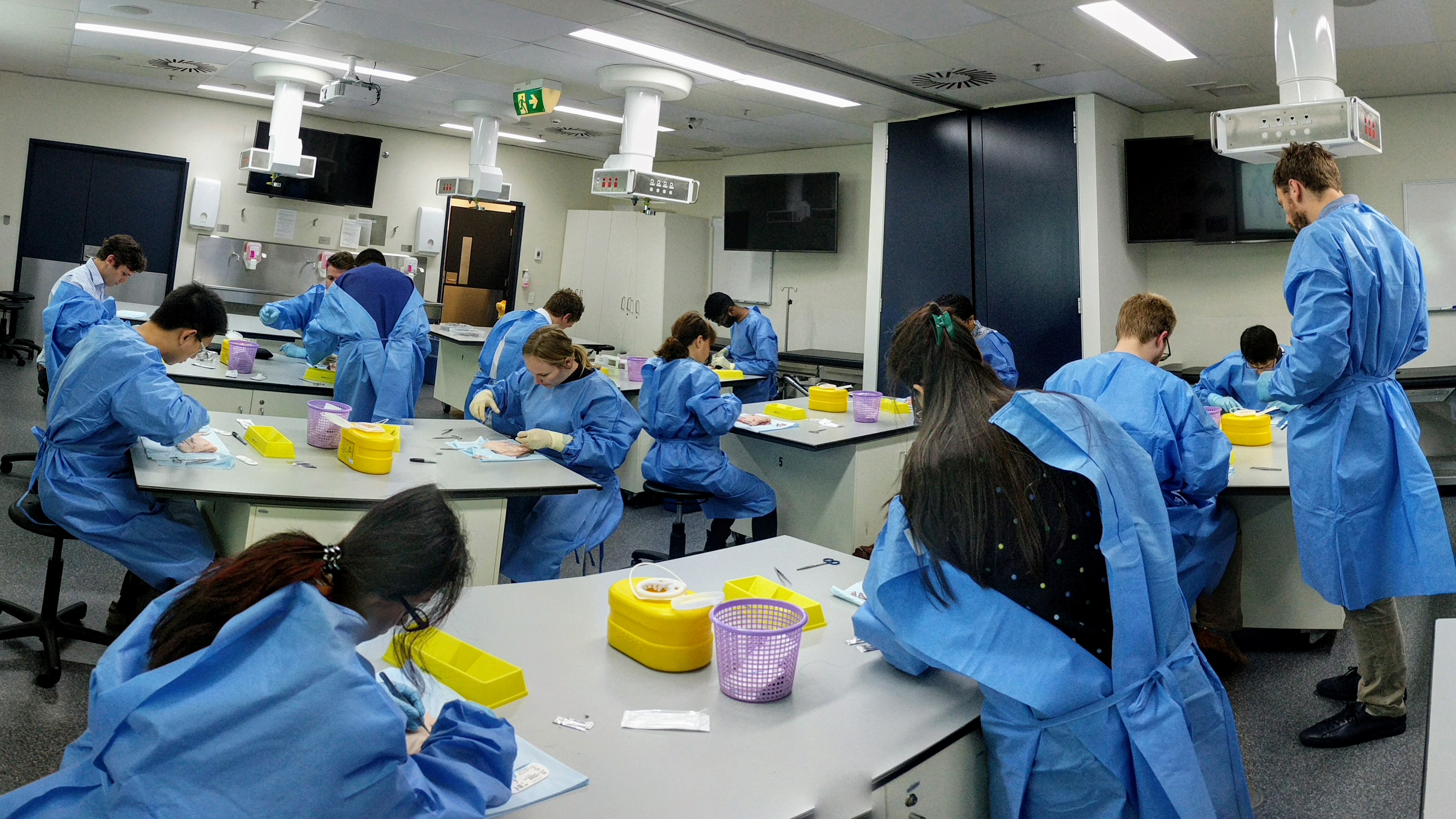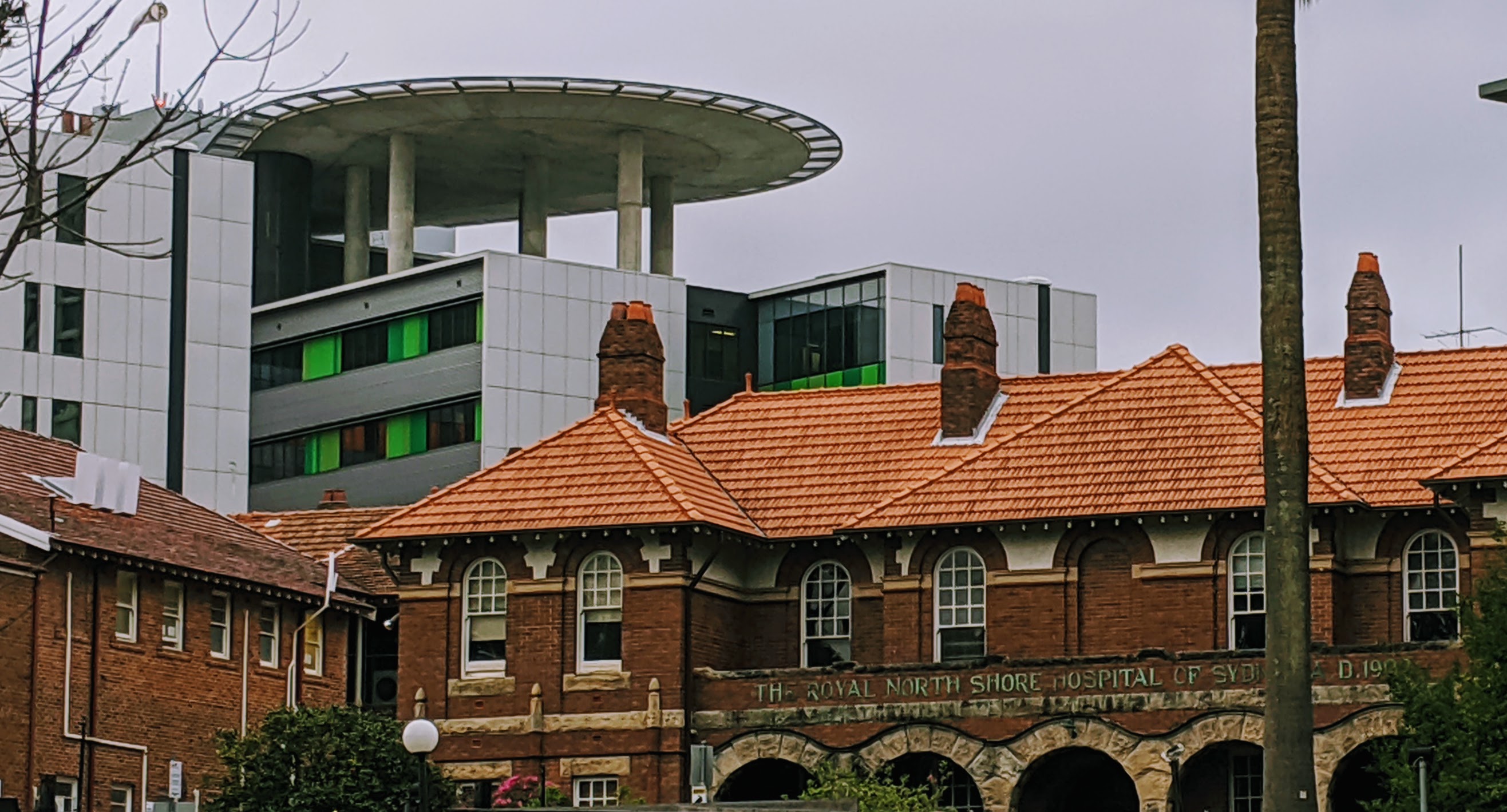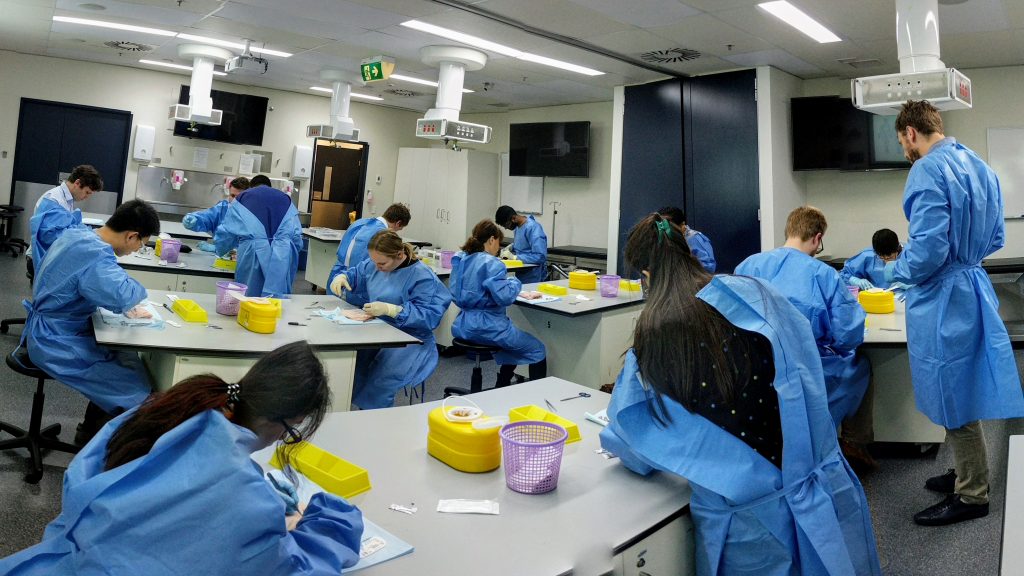
Dr Andrew Ellis, a senior orthopaedics surgeon at Royal North Shore Hospital, is the incoming president of the Australian Orthopaedic Association (October 2019-2020). He has worked at the hospital as a specialist orthopaedic surgeon for 25 years. Andrew began his internship there 10 years prior, trained on the Sydney Northside Training Program and gained his Fellowship from the Royal Australian College of Surgeons (RACS) in 1995. He then spent more than two years in the UK training in aspects of adult reconstructive surgery, in particular in the Ling Hip Fellowship in Exeter (1996).
His early career was as a Senior Lecturer in Orthopaedic at Sydney University, under the legendary Professors TKF Taylor and later David Sonnabend. During this time he developed a great love of education and was a co-founder of the Sydney Clinical Skills Centre, which is an integral part of the Northern Clinical School and has become one of the largest and busiest skills training centres in NSW.

RNSH is a level 1 Trauma Centre covering a large population base, especially as it has Statewide responsibilities in Spinal Cord Injury and Burns Injury. Andrew participated in the on-call orthopaedic trauma roster with high frequency sustained over twenty years. This has led to a contribution in teaching and training including more than 40 ATLS courses (most as Course Director), regular teaching on the Military Module of the Definitive Surgery of Trauma Course since its inception in Australia 20 years ago and the development and use of high fidelity simulation in medical team training. He has been a long-term member of the RACS Trauma Committee and a previous chair of the RACS Road Trauma committee. Later he spent three years as the Clinical Network Director in Musculoskeletal Health, Spine, Burns, Plastics and Trauma within the Northern Sydney Local Health District (NSLHD).

In parallel with his vocational trauma surgery, he has served as a part-time officer in the Royal Australian Army Medical Corps. This has included multiple short-term deployments in forward surgical teams in disaster support, peacekeeping and conflict missions. A highlight was as Clinical Director of the NATO Role 2 E hospital in Afghanistan during 2008 (see Childers 2015). Additionally, he has held sub-unit command and later worked as a senior staff officer in two major headquarters establishments. He holds the rank of Colonel but is essentially retired now and serves in the standby- reserve. He has been awarded a Gold Commendation from the Chief of Army for his contribution to the Army through training and the introduction of paramedics into service.
Andrew concentrates his elective practice on lower limb reconstructive surgery, principally through hip and knee replacement but also with a strong interest in neuromuscular disability of the lower limb including spasticity and paralysis. This encompasses arthroplasty and surgery in spasticity and tendon transfer for muscle imbalance in the foot and ankle. In this setting, he works in a strong multidisciplinary team.
Dr Ellis currently focuses his hip arthroplasty practice, research and teaching around the Direct Anterior Approach, understanding the effects and spino-pelvic kinematics, using pre-operative planning and simulation along with 3d printed guides to optimize the positioning of hip arthroplasty components.
He presents regularly and publishes periodically, is a co-editor of an undergraduate textbook (in its second edition and translated into several languages) and is a member of the Court of Examiners of the RACS. He has served in many ways the Australian Orthopaedic Association and for 9 years has been on its Board.
In 2003 was awarded the Medal of the Order of Australia for “services to orthopaedic surgery”.
Reference
Childers, R., & Parker, P. (2015). The Cost of Deploying a Role 2 Medical Asset to Afghanistan. Military Medicine, 180(11), 1132–1134. https://doi.org/10.7205/MILMED-D-14-00640

